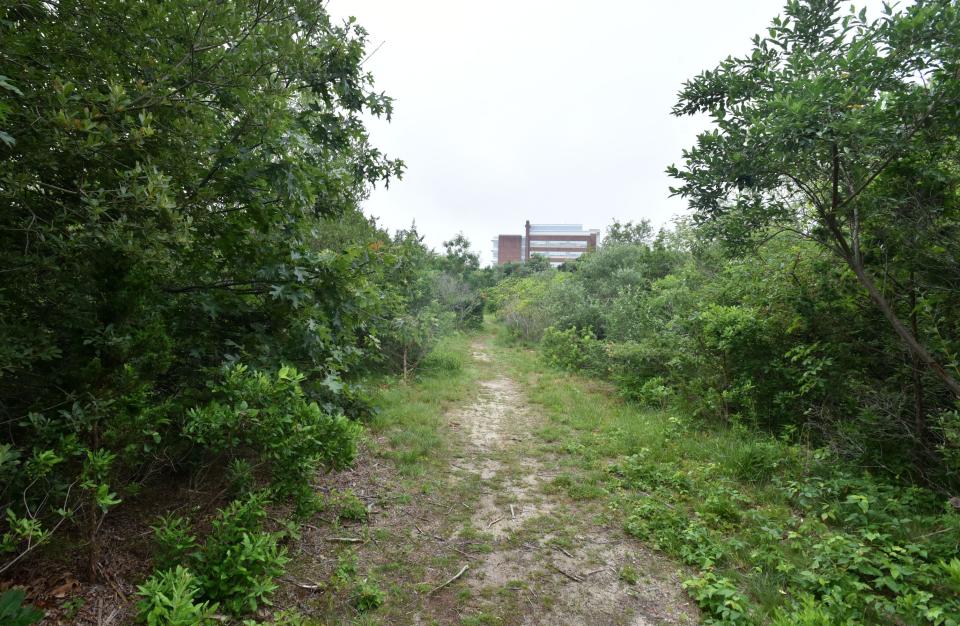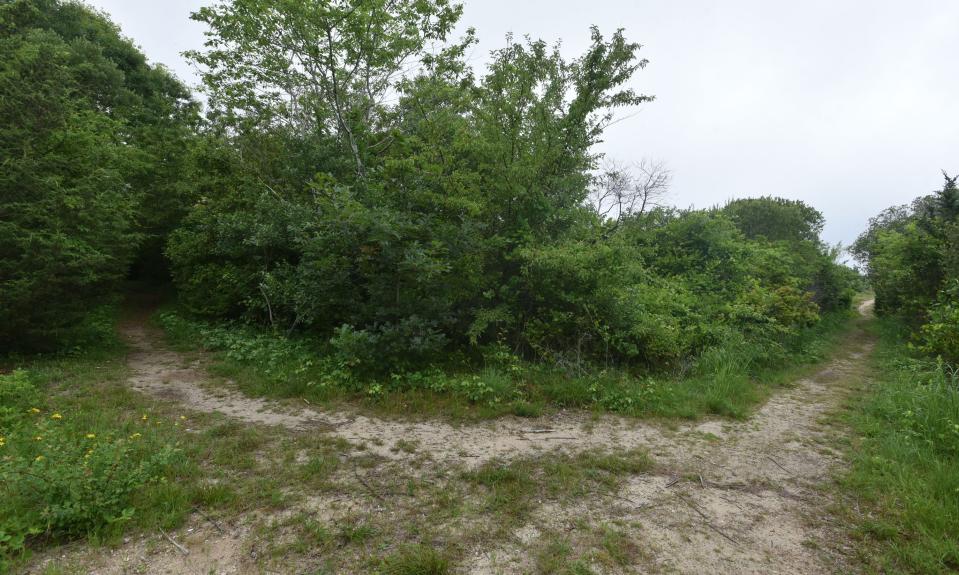In West Yarmouth, Bayview Bogs restoration is moving forward. What's in the works?
WEST YARMOUTH — Cape Cod Hospital is starting work on diagnosing and treating a patient unlike any it has ever taken on: the 89-acre, former commercial cranberry bog next to it in West Yarmouth.
Known as the Bayview Bogs, the land has become tangled with thick vegetation, and choked by non-native plants after about three decades out of use.
"This area really used to be a very important part of the community, but over time, because of the overgrowth of vegetation and the lack of care, it's become not so much of an asset anymore," said Mark Forest, chairman of the Cape Cod Conservation District, which is working with the hospital to restore the bog.

The hospital and the district recently hired Horsley Whitten Group, a Sandwich civil engineering and environmental consulting firm, to conduct a hydrologic study to get a picture of how surface and groundwater flows and to map out its outlets. Ilex Environmental, Inc. was also contracted to collect information that will shed more light on the bog's history and how it fits into the landscape.
More than a year and a half ago the project was accepted into the priority projects program overseen by the Massachusetts Division of Ecological Restoration. Having the consultants on board means the project can move forward, said Forest.
"We're just sort of at the beginning. Our big goal is to assess the overall environmental health of the site itself, and assess the hydrology," he said. "We're trying to inventory the wetlands."
In the past, the site was significantly altered.
"There are residents that insist that fish used to come up through that area. Obviously we're aware it's a pretty rich habitat," Forest said.
'Think of it as a patient. The patient is sick...'
A key goal is to understand to what extent changes to the site have disrupted the ecology, he said.
"Think of it as a patient. The patient is sick. We're going to do a writeup where there's going to be a diagnosis, and then we're going to look at what the treatment options are and engage in a discussion with the stakeholders — residents, the hospital," Forest said.
The site has the potential "to be a real asset," not only for the hospital that owns the property, but also its patients and their families, and the communities at large, he said.
Restoration will aim not only to improve the wildlife habitat and water quality, but also to improve resilience to coastal flooding. The project will create passive recreational opportunities, and quiet spaces where hospital patients and their families can soak in the proven benefits of being outdoors.
"Clearly the more we are able to provide passive recreation opportunities, I think that'll be a huge benefit," said Forest, noting he's heard many stories about how people would walk their dogs on the site, and even ice skate.
The project, he noted, will consider different options, like areas of open water and wet meadows, as well as walking paths and benches for resting.

But first, Forest said, "one of things we really need to understand is the flood control aspects of the area," and the possibilities for reestablishing a natural tidal interaction with nearby Lewis Bay.
A history of cranberry farming
Cranberry farming began on the site in the late 1800s and continued to the late 1990s, according to the hospital. The bog was originally farmed by the A.D. Makepeace Company of Wareham, a founding member of the Ocean Spray Cooperative.
In the '80s, the hospital bought the land with the intention of building a new hospital. When that plan didn't materialize, the hospital attempted to restart cranberry growing there but the project was pocketed after the Environmental Protection Agency declared the bog “wetlands in perpetuity.”
Ever since, said Forest, the bog has become increasingly overgrown to the extent where it can no longer be used by the public and may attract unwanted activity — in 2016, for example, police discovered a homeless encampment there where people were cooking meth.
Mother Nature, said Forest, won’t let the bog stay under the maintained conditions of an active cranberry operation. “It’s been affected by many forces, including climate change, road water runoffs and various management efforts," he said.
Initial work will continue through 2024
The initial phase of the work will continue through 2024 and will include creating a shared vision for the bog. Once that is done, according to the conservation district, "the project team then plans to move into the conceptual design phase, followed by project permitting, final engineering, design and construction."
The initial work is supported by a $400,000 grant from the Division of Ecological Restoration, which will pay for hydrology assessment, including surface and groundwater studies, design and engineering, and permitting, as well as community outreach.
Calling the project an important ecological restoration, DER Director Beth Lambert said in a release that the agency plans to support the project "with funding and technical support from beginning through completion."
"Once restored," she said, "Bayview Bogs will improve fish and wildlife habitat, benefit public safety and offer access to nature for the community."
Heather McCarron writes about climate change, environment, energy, science and the natural world. Reach her at hmccarron@capecodonline.com, or follow her on Twitter @HMcCarron_CCT
Thanks to our subscribers, who help make this coverage possible. If you are not a subscriber, please consider supporting quality local journalism with a Cape Cod Times subscription. Here are our subscription plans.
This article originally appeared on Cape Cod Times: Preliminary work on Bayview Bogs restoration begins in West Yarmouth

